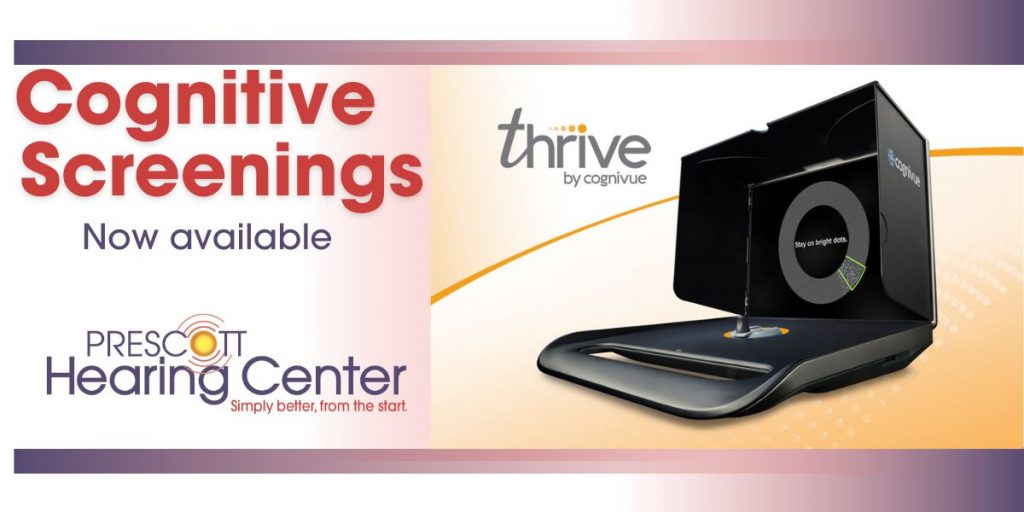Prescott Hearing is Proud to Introduce Cognitive Screenings with Cognivue

Hearing loss isn’t just about being unable to hear; it can also affect cognitive abilities, concentration, and even social behaviors. Fortunately, Prescott Hearing is proud to introduce Cognitive Screenings with Cognivue, a revolutionary new way of testing for hearing loss. Cognivue is a computerized system that uses an interactive game-like environment to measure auditory processing speed and accuracy. This simple, non-invasive test will accurately analyze your hearing and provide detailed insights into any potential areas of concern. Keep reading to find out how Cognivue can help you better understand your hearing health!
What are cognitive screenings?
Cognitive screenings are tests that are used to measure an individual’s cognitive abilities. These abilities include attention, executive function, processing speed, and working memory. Cognivue is a cognitive screening tool that Prescott Hearing is proud to introduce. This tool is easy to use and provides accurate results that can help identify areas of cognitive decline.
What is Cognivue?
Cognivue is a cognitive screening test that is quick, easy, and painless. It only takes about 10 minutes to complete, and it can be done right in our office. This test is important because it can help identify early signs of cognitive decline, which is critical for early intervention.
This test is easy and fun, because it plays like a video game. It will test your ability to recognize patters, make decisions, as well as test hand eye coordination- and it does it all in minutes!
Cognivue is a valuable tool that can help us provide better care for our patients. We are proud to offer this service to our community.
How can cognitive screenings help with hearing?
Cognitive screenings can help people with hearing loss in a number of ways. First, they can identify whether someone is experiencing cognitive decline. Second, they can help to determine what components of speech understanding may be related to hearing loss, and the impact that cognitive function may be having in day to day conversations. Finally, they can provide information about how well someone is going to be able to adapt to technology.
Cognitive screenings can be used to identify whether someone is experiencing cognitive decline because they measure how well a person is able to remember and process information. If someone is having difficulty with these tasks, it may be an early sign of cognitive decline.
There are two main types of hearing loss: conductive and sensorineural. Conductive hearing loss occurs when there is a problem with the way sound waves are conducted through the ear. Sensorineural hearing loss occurs when there is damage to the inner ear or the auditory nerve.
Cognitive screenings can provide information about how well someone is able to hear and understand speech in real time. This information can be used to determine an appropriate hearing aid or other type of assistive listening device for their difficulty understanding.
Contact us at Prescott Hearing today to set up your cognitive screening and hearing exam!

